Gabrielle’s costly impact!
HortNZ chair Barry O’Neil says just taking into account the crop losses and the cost of re-establishing orchards and commercial growing land this year alone, the figure of $1 billion is being bandied about. He also warns it won’t be a one-off hit, with losses being felt for several years to come.
O’Neil told Hort News that it’s too early to put a figure on what the cyclone may cost NZ in terms of lost export earnings. However, he points out that NZ still produces very high quality fruit and vegetables and will continue to do that.
“There is no need to for overseas markets to be concerned that this won’t continue.”






O’Neil says for the past few weeks, the priority has been ensuring that people are safe and now the emphasis is on recovery. He says while the initial government grant of $2,000 to help clean up land is great, the reality is that it will cost many orchardists more like $40,000 to get their orchards cleaned up before they can even think about replanting again.
“Groups are currently being established to work through the various options,” he told Hort News. “MPI have done a tremendous job and I really appreciate the efforts of the Prime Minister, and Ministers of Finance and Agriculture and others for engaging and fronting up to growers, finding out for themselves what is going on.”
O’Neil says he looks forward to working with the Government to go to the next step, which is the re-estab-

lishment of orchards and how they can be financially supported. He says many of the banks are holding mortgages on orchards and it’s unlikely they will be able to do much.
O’Neil points to the option of government making finance available in the form of a suspensory loan or some short term financial arrangement to get growers back on track.
The labour to help with the cleanup and harvest doesn’t appear to be a major problem.
“The fact that government has relaxed some of the immigration laws has helped. People with diggers and bobcats are coming to Hawke’s Bay to help and this is very heartening.”
While the focus has to a large degree been on apples, O’Neil says vegetable crops have been very badly hit with the kumara crop practically wiped out in Dargaville. Crops such as squash and onions are facing the same fate. He says hopefully these growers will be able to bounce back in the next 12
months by being able to work the silt back into the soil.
“If they are supported by the banks they will be able to operate in a reasonable short period of time because they don’t have to wait six years like an apple grower has to.”
O’Neil believes that, overall, kiwifruit probably suffered more from the October frost than Cyclone Gabrielle. He really feels for the Ngai Tukairangi Trust whose big orchard near Hastings has been devastated by Gabrielle.
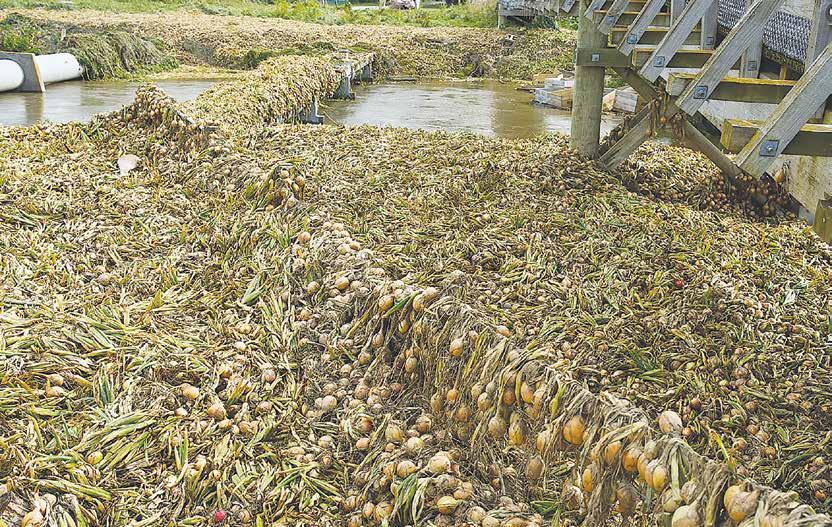
O’Neil told Hort News that, in the case of kiwifruit, if the present vines managed to survive, it will be possible to graft new stock on to these and it may take only two or three years for those growers to get a commercial crop. In the meantime, he says everyone in the hort sector is chipping in and those who can are helping their fellow growers.

“It all now all hinges on getting the help to restoring the industry to its former self.”
Replacement Spray Pumps & Spray Kits







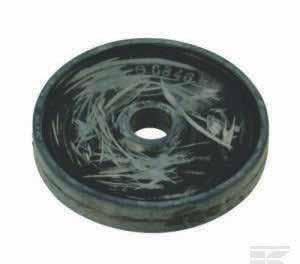

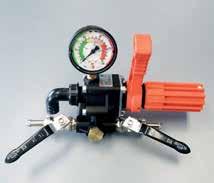

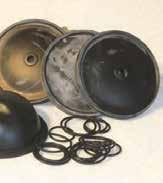
Webbline Agriculture is a direct importer/reseller of a full range of pumps from market-leading manufacturers, along with service kits and accessories. Large range in stock. Dealer enquiries are welcome.









HORTNEWS MARCH 2023, ISSUE 31 ISSN 2624-3490 (print) ISSN 2624-3504 (online) WWW.HORTNEWS.CO.NZ Kiwifruit aids sleep –Study – Page 6
THE COST of Cyclone Gabrielle will run into the billions of dollars over the coming years.
Peter Burke peterb@ruralnews.co.nz
Onions are among the debris in and around Karamu Stream, near Whakatu a rural community in Hastings. Photographer Mark Sudfelt, owner of Peak Video, Hawke’s Bay took the photo after Cyclone Gabrielle ripped through the region. The onions came from a large field several hundred metres upstream.
PHOTO: MARK SUDFELT
View online - www.webbline.co.nz Contact Ben 021 819 482 | ben.boakes@webbline.co.nz WAIKATO • MANAWATU • CANTERBURY • SOUTHLAND
Damage to country’s vegetable crops still being calculated
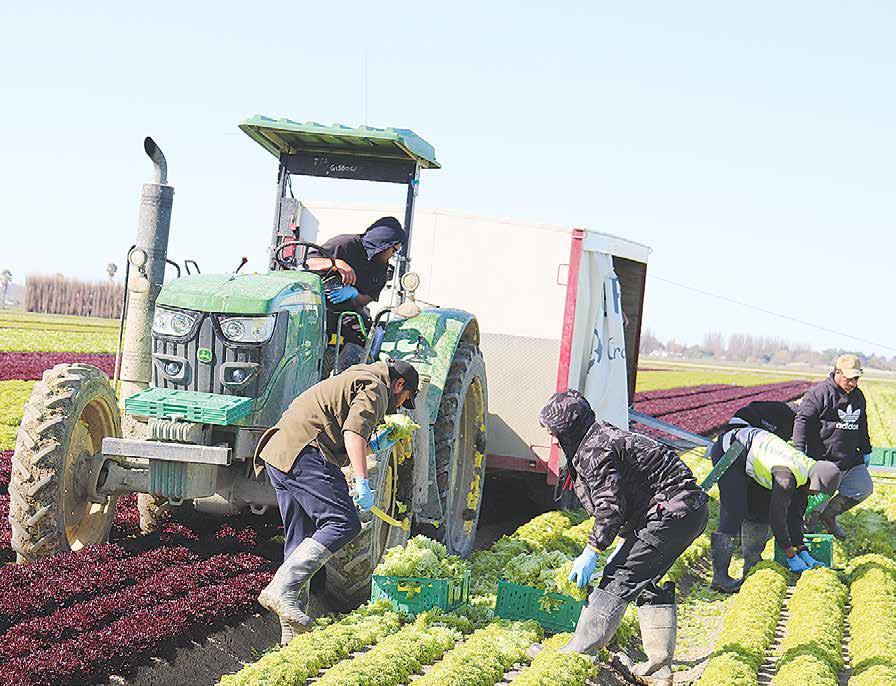
LOCAL VEGETABLE
growers are in full “clean up, tidy up” mode, says Pukekohe Vegetable Growers’ Association (PVGA) president, Kirit Makan.
“Everyone’s in full swing getting the onion harvest completed and hoping for more good weather.”
A lot of remedial work was being carried out, moving silt back on to paddocks and emptying out silt traps as well as repairing damage then cultivating soil, sometimes for the second time.
The Auckland flooding saw over 200mm of rain fall in late January, then other areas received the same dousing two weeks later with Cyclone Gabrielle.
There were pockets of larger vegetables losses with Makan estimating “quite a few tonnes” of onions were lost. Potato losses were feared a result of water sitting in low lying paddocks for some time which could cause them to rot.
Spinach crops had also been affected by the heavy rain and while there were other crop losses those were difficult to quantify, without approaching each and every grower.
“They’re pretty stressed at the moment, so we haven’t done that,” he told Hort News.




The PVGA had reassured them it was there to help and Horticulture New Zealand was encouraging growers to apply for immediate Government financial assis-
tance to help clean up silt, which some had already received.
Makan says growers were unlikely to make changes to the crops they planted because of the delay the rains caused in getting them into the soil.
“There’s not a lot to be gained. It’s still warm and so long as the weather stays fine the ground’s good for working up.”
Another Pukekohe grower, Bharat Jivan, says
he’s noticing potato yields are well below potential. Due to low light levels through the summer, he estimates the size profile is down and harvests from some of their blocks may be from 15 to 30 percent down on average.
He and his brother harvest potatoes all year round but many Pukekohe growers plant their crops in November and December so they can be ground-stored and
harvested through the winter.
Because of earlier wet weather, planting was delayed until closer to the end of the year, meaning they were just finishing off growing now.
“They haven’t had a good growing season so we’re not going to hit average yields,” Jivan says. “We haven’t really had a summer. If that’s how we feel imagine how it is for plants.”
He had around 50 hectares of onions waiting to be harvested when the first rain event hit and was now noticing skin quality wasn’t as good as it should be.
The crop will spend a couple of weeks in storage sheds during which he’s worried that some onions could rot, deteriorate or collapse.
“That will mean we’ll have to send them to appropriate markets,” he
told Hort News.
Some growers will be faced with double their usual costs of using machinery or hiring contractors to clean out their silt traps then put soil back on their paddocks where it had been washed off during the rain.
“The soil has moved to drains, silt traps and headlands and some growers have lost topsoil with scouring through the middle of their pad-
docks,” Jivan says. “There’s lots of work to be done and we just need fine weather to get the soil worked up. Fingers crossed.”
Ironically, some growers had made big investments last year putting in irrigation systems, which they had not needed to use at all so far this summer.

“But who knows what the next season will be like.”

MARCH 2023 2 HORTNEWS
Available at your local FELCO Stockist. Heiniger is the exclusive FELCO distributor and authorised service centre in NZ - contact us to find a FELCO dealer near you. (03) 349 8282 | heiniger.co.nz
precision.
FELCO 211 LOPPERS The perfect balance of power and manoeuvrability. The FELCO 211 range feature lightweight aluminium handles for comfortable cutting and curved cutting heads to pull in and easily slice through branches FELCO POWER TOOLS Power through even the biggest jobs with ease. Designed to act as an extension of your body, the new FELCO Power Blade series feature lightweight, ergonomic handles for comfortable pruning all day long. NEW
full extent of crop
is still unclear.
Glenys Christian
Swiss
Made to last.
The
damage in the Pukekohe region
More kumara losses loom
land of Ruawai and Dargaville were flooded for days as a result of Cyclone Gabrielle.
degree and left the plants alive but caused a large portion of the tubers to rot underground.
KUMARA GROWERS are bracing for more bad news as harvesting gets underway in flood-ravaged Northland.
With one-third of the 2023 crop already visibly dead and lost, the less visible loss of tubers rotting underground is about to become known.
Vegetables New Zealand director and Ruawai kumara grower Warwick Simpson told Hort News that this loss will become clearer as harvest progresses during the next few months. He says growers are also expecting higher than normal losses due to rotting in storage too.
Many farms in the kumara heart-

Simpson’s farm at Ruawai was flooded for several days, with no electricity and internet connection. He says while there is still some post-cyclone cleanup going on, most growers are gradually settling back into business as usual and starting to harvest, albeit with a much reduced crop due to the flooding.
The most extreme flooding has resulted in obvious crop loss that can be seen in the dead plants – roughly a third of the industry’s crop, he told Hort News
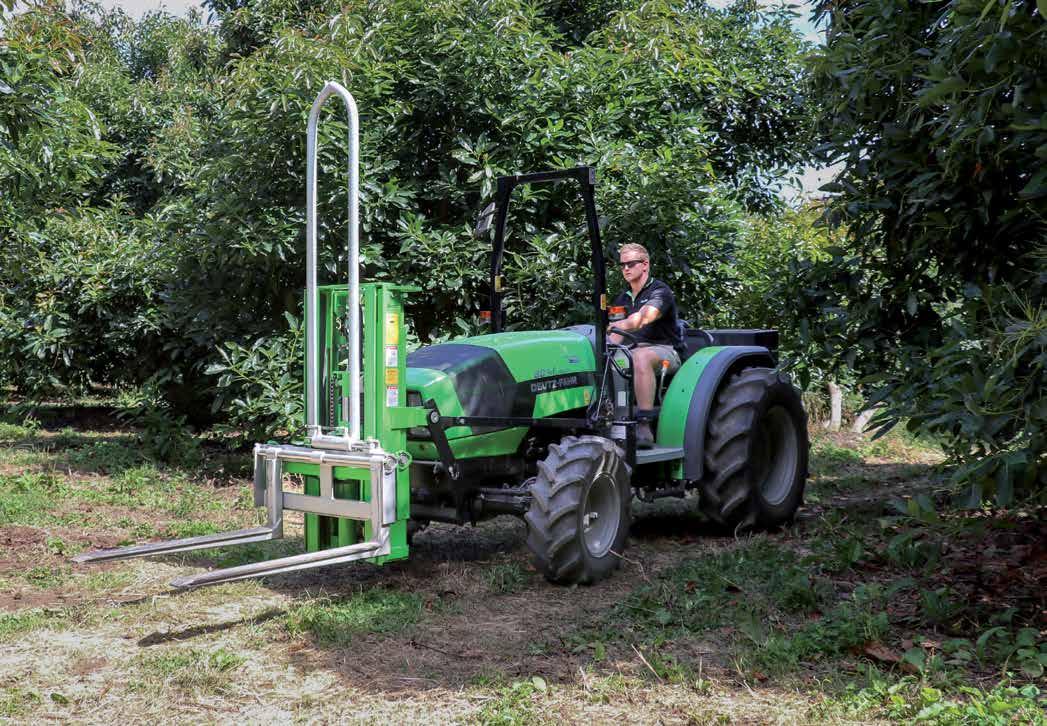

“But the harder part to quantify is the areas that were flooded to a lesser
“This loss will become clearer as harvest progresses during the next few months, though we are also expecting higher than normal losses due to rotting in storage too.”
Simpson notes that the planting season was already very challenging due to the wet weather, with growers only managing to plant 70% of the usual area, before Cyclone Gabrielle did its damage.
Kumara growers are getting support from Northern Wairoa Vegetable Growers Association, Vegetables NZ and Horticulture NZ.
Simpson says they are aware grow-
ers were already in a challenging position due to record low prices for kumara last season. He says short-term recovery efforts are around grower welfare, and making sure they’ve got what they need to keep their business running.
An example is a recent grower lunch, provided by the Northland Collaboration Team. Representatives of Ministry for Primary Industries, Rural Support Trust, Kaipara District Council and others were present to offer advice and make sure growers are aware of the support available.
Simpson says for the slightly longer term, they are working on a seed contingency scheme.
“Normally growers would keep aside a portion of their harvested

kumara to use as seed for next year’s crop, so this year’s shortage has a risk of causing a shortage next year due to lack of seed,” he explains.
“We’re working to make sure growers will have the seed they need to be able to provide the usual amount of fresh kumara next season.”
Simpson says the big challenge for growers will be keeping their business operating after their main source of income for the rest of the year has been significantly lost – up to 100% in some cases.
He points out that it will be important they get the necessary support, “so they can keep feeding New Zealanders, providing employment and supporting the local economy”.
3 MARCH 2023 HORTNEWS
Sudesh Kissun sudeshk@ruralnews.co.nz
FINANCE FROM 0%* INTEREST AGROPLUS $39,990+GST 80-105HP FROM *Terms, conditions and normal lending criteria applies. 30% deposit, 0% interest rate, monthly payments over 24 months. GST paid month 3. While stocks last and for a limited time only. deutz nz WE HAVE NO INTEREST WITH IMPROVED PRODUCTIVITY Power Farming NZ | www.powerfarming.co.nz | 0800 627 2225
Flooded kumara on Ruawai kumara grower Warwick Simpson’s Northland property. He says growers are expecting higher than normal losses due to rotting in storage too.
Cyclone won’t stop celebration
and a wide representation from the Māori and wider agribusiness sector.
“DESPITE THE horrific consequences and devastation of cyclones Hale and Gabrielle, we must still make time to celebrate.”
That was the message from Māori Development Minister Willie Jackson when he announced the three finalists in this year’s Ahuwhenua Trophy for the top Māori Horticulturalist for 2023.
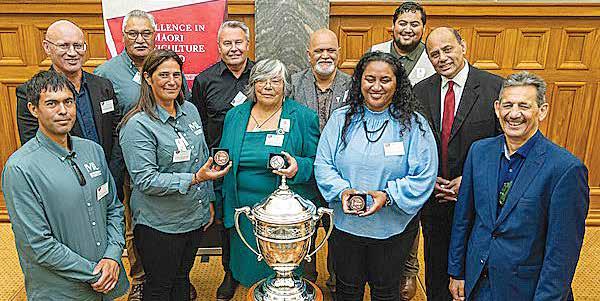
The three finalists are Ngai Tukairangi Trust based in Northland, the Bay of Plenty and Hawkes Bay, MIL – Whiritoa Orchards, near Whakatane, as well as Wi Pere Trust whose operation is just out of Gisborne.
Despite all their orchards being damaged in various ways in the past months, representatives of all the finalists travelled to Wellington for the announcement held in Parliaments Grand Hall. It was also attended by politicians, members of the diplomatic corps
The Ahuwhenua Trophy is the most prestigious award for excellence in Māori farming. Its purpose is to encourage Māori farmers to improve their land and their overall farming performance with an emphasis on sustainability.
On a three year rotational basis, Māori compete for the trophy in the horticulture, dairy and sheep and beef sectors. This is only the second time the competition for horticulture has been held.
Jackson told the gathering his heart went out to all those affected by the cyclones – not just Māori – as they work to try and re-build their lives and businesses. He says while the ongoing consequences of the disaster continue to unravel, it is important to continue to run the country and undertake the normal democratic functions.
Jackson added that it was
also necessary to celebrate another important chapter in the history of
the Ahuwhenua Trophy.
“That is what today is about. It’s a real celebra-
tion about what Māori are doing out there in rural Aotearoa,” he explained.
PRAISE FOR FINALISTS
NUKUHIA HADFIELD, chair of the Ahuwhenua Trophy Management Committee, says the competition committee is very mindful of the disastrous consequences of Cyclone Gabrielle, not to mention the numerous other adverse weather events that have affected the sector in the past six months.

She says that before Gabrielle struck, the judges were able to visit the properties of all the entrants and select
LOW-COST SUSTAINABLE FENCING


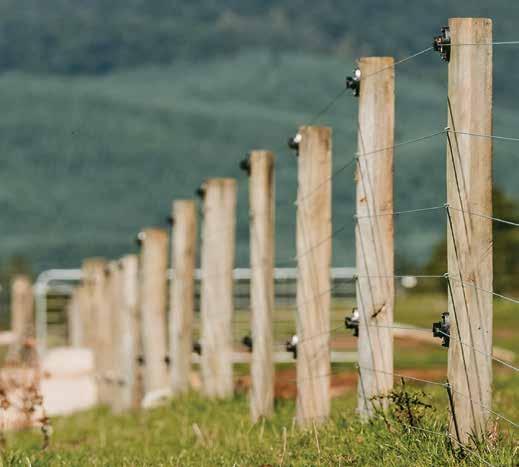
three excellent finalists. Hadfield says the current situation means likely changes to the judging process, however, all agree that it is possible to hold the competition and determine a winner.
“We have selected three incredible finalists, all of whom could be worthy winners of the Ahuwhenua Trophy for Horticulture,” she told Hort News “Before Cyclone Gabrielle struck, they had to deal with
“I am pleased to be here to celebrate this day with everyone – the work and the mahi goes on and the celebration should continue.”
In congratulating the finalists, Jackson noted that horticulture is in the DNA of Māori and is part of the values they hold for the whenua or land and is part of their identity. He says horticulture is an activity Māori have undertaken for centuries. He adds that, recently,
the ongoing effects of Covid19, shortages of labour and logistical issues. They have already proved their resilience and determination to work their way through adversity, although dealing with the impact of Cyclone Gabrielle is a much higher mountain to climb.”
Hadfield says the finalists – along with all the other entrants – have made a significant contribution to the economic success of Aote-
Māori horticulture has gathered significant economic momentum and grew 300% in the 14 years to 2020.
“That is a real testament to the mahi of our people in this room,” he says.
Jackson says 2023 is special year for Ahuwhenua for it marks the 90 years since the trophy was inaugurated Māori leader Sir Apirana Ngata and the Governor General at the time Lord Bledisloe.
aroa, which is not widely known or recognised.
“The aim of the Ahuwhenua Trophy competition is to follow the vision of Sir Apirana Ngata and Lord Bledisloe by changing this narrative and showcasing our success to the wider public.”
The winner will be announced at the awards dinner held on 9 June 2023 at 2023 at the Trustpower Baypark Stadium, in Tauranga

MARCH 2023 4 HORTNEWS
peterb@ruralnews.co.nz www.repost.co.nz customerservice@repost.co.nz
Peter Burke
repostnzrepostnz
Trimmed Half Rounds unpointed 1.8m $3.85 $3.25 1.6m Quarter Rounds unpointed $4.00 1.8m $3.25 1.6m We also provide pointed posts Prices exclude GST 5% discount to all those affected by the cyclones on orders over 1000 posts DURABLE RECYCLED LOW-COST NZ MADE SMART INNOVATIVE Our posts meet the NZ H4 CCA treatment standards
‘Our hearts go out to all of you affected in these difficult times’ Greg Coppell and Stu Dudley, Repost
This year’s finalists at Parliament’s Grand Hall: Back L-R :John O’Brien, Rex Anderson, Wayne Hall, Ratahi Cross, Te Hira Pere, Hon Willie Jackson Front L-R:Ray Hiki, Helen Scott, Trudy Meredith, Riri Ellis, Kingi Smiler.
Cream of the crop of NZ’s Maori horticulturalists
NGAI TUKAIRANGI Trust has orchard operations in four regions across the country.
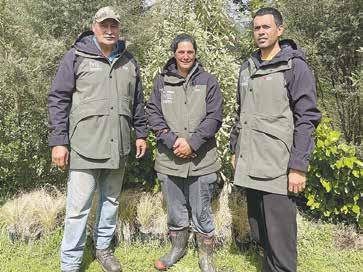
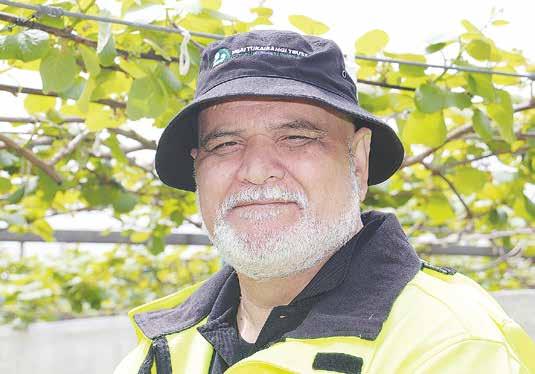
Its largest orchard operation is situated near Hastings in the Hawke’s Bay. This is a large-scale, well-run horticultural business with a total planted area of 106ha in 2022 – mostly G3 and the remainder in apples. The land was purchased by the trust in 2017 and complements its other kiwifruit operations in Kerikeri and in the Bay of Plenty, where the head office of the trust is situated.
The Heretaunga kiwifruit operations are unique in that they are entirely covered by overhead cloth. It is the largest area of overhead shelter in the country, offering protection against wind and hail, whilst the Hawke’s Bay’s winter provides optimal chilling and the potential for organic production in the future.
Ngai Tukairangi Trust was a finalist in the inaugural 2020 horticulture competition with its Matapihi orchard near Tau-
ranga.
Māori Investments Ltd (MIL) is based in Kawerau. Its orchards (Whiritoa) are located in Te Teko. Whiritoa Orchards were purchased in 2016 and 2017.
The first orchard to be purchased was Whiritoa Organic (215B Galatea Road) and is approximately 5.37 hectares in size growing organic
gold kiwifruit. The second orchard is Whiritoa Gold (207 Galatea Road) approximately 6.84 canopy hectares, located beside Whiritoa Organic.
MIL undertook significant work to remove some structures over the canopy, and both orchards are managed in accordance with tikanga Māori. It currently employs seven per-
AMAZING ESCAPE!
NGAI TUKAIRANGI Trust chair Ratahi Cross was one of many people to have a narrow and frightening escape from the floodwaters that struck around Puketapu, north east of Napier and adjacent to Eskdale.
He was out at their orchard when the Ngauroro burst its banks and he suddenly turned around and saw the floodwaters lapping at the door of his truck.
“I jumped in and of course the water poured in, but the truck was running, so I decided to get back onto Swamp Road with the water chasing me and it was going as fast as my truck as well,” he told Hort News
“I got through to Omahu and I was trying to escape out there and then I saw the river had breached there as
HOW THEY COPED WITH THE CYCLONE
ALL OF the finalists suffered some damage from the cyclone, but the worst hit was Ngai Tukairangi Trust’s operations near Hastings.
Chair Ratahi Cross says the storm that hit Hawkes Bay was far worse than Cyclone Bola many years ago. He knows this because he was part of the organisation dealing with that event.
Cross told Hort News the trust’s initial response has been to make sure that their staff and families were safe, appropriately cared for and had all the basic necessities they needed.
Wi Pere’s operations are based near Gisborne. General manager of horticulture, Wayne Hall, says their main concern is the silt which is around their trees and vines.
He says there is a risk of the plants suffering from ‘wet feet’ but he is hopeful the water drains away quickly and the silt can be removed. He adds that the timeframe to do this is quite narrow.
manent staff on orchard. All seasonal workers are local and contractors only come in during the harvest season. The orchards can employ up to 20 fixed term employees during the peak seasons.
Located in Gisborne, Wi Pere Trust Horticulture consists of 79ha of permanent fruit crops.
This area is made up of 26ha of Gold kiwifruit (11ha of which is organic), 4ha of persimmons, 15ha of citrus, 4ha of blueberries and 20ha of Rockitt and 10ha Tarzi of apples. Three separate orchards combine to make up the diverse horticultural operation: Toroa orchard at Waerenga-a-Hika, Tangihanga orchard at Waituhi and Manutuke orchard at Manutuke.
well. So, I headed towards the golf links, near Taradale, and tried to get out that way. By the time I got there the tar seal was floating and the river was raging under the tar seal and it had exploded out – I was absolutely trapped,” he says.
Eventually, Cross and a group of about 50 people managed to scramble to high ground where they remained for 2 ½ days until they were able to get out. To add to the drama, a member of the group had a heart attack and it was only by chance that a member of the group had a Starlink phone and they were able to call in a rescue to take the person to hospital.
“It’s such an amazing thing when you see a helicopter and you know it’s coming to you – it’s very uplifting,” he says.
He adds that its orchard in Hawke’s Bay was badly hit and estimates damage to be somewhere between $35m and $40m. However, he adds that it could nearly a year to get a final number on the damage.
Cross says it depends on a number of factors including how kiwifruit survive with water and silt lying around them for any length of time. He believes that vines that are not badly damaged could be back in production within a year, while it may up to three years to get other vines back in production.
Also damaged is the covering over the vines, which was dramatically illustrated when Cross met with Prime Minister Chris Hipkins to see the problem for himself. Cross says they are looking at some sort of financial support from the Government to help them over the next couple of years until they can get back on their feet.
Hall says they have enough staff and equipment to deal with that and have also been able to harvest apples from the main orchard. He says the worst affected appear to be their younger trees. Hall says their kiwifruit is in a different location and is not damaged.
“We are very lucky compared with a lot of others,” he told Hort News. “Our biggest problem was we had no comms for five days – so just not knowing what was happening was the main concern.”
MIL’s orchard manager Helen Scott told Hort News that it’s operation, near the eastern Bay of Plenty town of Te Teko, escaped much of Cyclone Gabrielle’s wrath.
But she says they were hit by a hail storm and last year suffered damage from the big frost that hit that region. Because of the rain throughout the past months, they have concerns about their kiwifruit vines suffering from ‘wet feet’.
Scott says the effects of the bad weather have been depressing and the challenge has been keeping staff to be upbeat and positive in the difficult times.
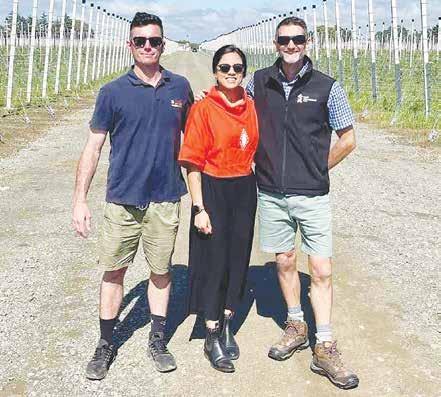
5 MARCH 2023 HORTNEWS
Peter Burke peterb@ruralnews.co.nz
Northland based Ngai Tukairangi Trust L-R: Liam Sykes (Apple Manager), Makita ButcherHerries (People and Culture Adviser) & Richard Pentreath (Regional Orchard Manager)
Kawerau’s Maori Investments Ltd (MIL) team L-R: Rex Anderson (Property Manager), Helen Scott (Orchard Manager) & Ray Hiki (Orchard Supervisor).
Kiwifruit aids sleep – study
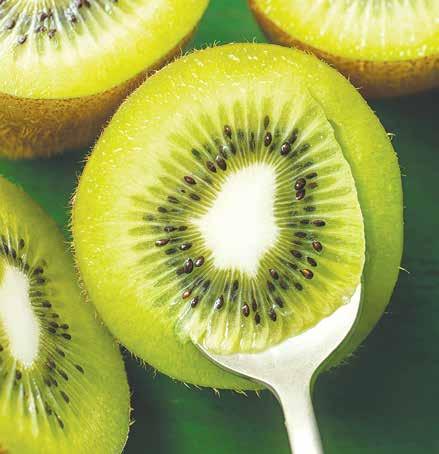
THE OLD adage of ‘an apple a day keeps the doctor away’ may now have to be changed to ‘a kiwifruit or two helps you to snooze’.
This comes after new research shows that eating two green kiwifruit a day can improve sleep quality and mood, and leave people feeling refreshed in the morning.
Riddet Institute
PhD candidate Alex Kanon and his supervisor, Dr Sharon Henare from Massey University, researched the benefits of eating two kiwifruit in the evening. They found an immediate positive effect, with participants experiencing a better sleep the same night. The research was conducted over the past two years.
The Riddet Institute is a Centre of Research Excellence (CoRE), hosted by Massey University in Palmerston North, focus-
ing on advanced food research.
“Other studies have looked at sleep and kiwifruit over a longer period of daily consumption – around 4 weeks. We wanted to see if we could see an acute effect – can you eat kiwifruit now and feel the benefits straightaway,” Kanon says.
The research in healthy men (half with poor sleep and half with good sleep) saw participants eating an evening meal, followed by either two fresh green kiwifruit (without skin) or two powdered dried kiwifruit (with skin) or water. The research team then measured sleep quality, mood and urinary biomarkers.
“We found that regardless of whether you normally have good or bad sleep, kiwifruit had an immediate positive impact on different
aspects of sleep quality and mood,” Kanon explains.
Sleep is essential for

the cellular repair of the body and can affect our immune function, psychology and increase the


risk of obesity, type 2 diabetes and cardiovascular disease.
One night of sleep
HORTNEWS

Introducing Hort News, a national publication serving the needs of our booming horticulture sector.
Distributed with the leading national farming publication Rural News, Hort News will be delivered to all key horticulture regions nationwide.
disturbance can affect a person’s ability to concentrate, which may increase technical errors and decrease overall mood the following day.
Both groups felt that it was easier to wake up in the morning and they felt less sleepy after eating the kiwifruit. There were also improvements in their psychological wellbeing in the morning, with significant improvements in positive mood, esteem and vigour.
“Serotonin plays a central role in the regulation of sleep-wake cycles,” Kanon adds. “We saw significant increases in serotonin metabolite the morning after participants ate fresh or dried kiwifruit.”
The research was funded by the HighValue Nutrition National Science Challenge and supported by Zespri International Limited, who
contributed fresh Zespri Green Kiwifruit.
“The study shows there is potential for New Zealand kiwifruit-based products with health messaging related to sleep quality and mood, while also potentially bringing increased economic benefits for kiwifruit growers,” explains Joanne Todd, high-value nutrition challenge director.
“We know there is crosstalk between the gut and the brain and these results highlight the importance of that link,” says Paul Blatchford, Zespri innovation manager. “The study findings are encouraging and contribute to the growing body of evidence of kiwifruit’s impact on mood and wellbeing.”
This new research will be published in Frontiers in Nutrition, section Nutrition, Psychology and Brain Health.
conclude this agreement. “The New Zealand team has had toatjoinZoomcallswiththeircounterparts night,extremelyinconvenienttimesofthe for example.” The conclusion of this agreement willbenefitoniongrowersandregional communities, from Pukekohe to Can- terbury. Onions are an important rota- tion crop for many vegetable growers. Having onions in a rotation allows growers to rotate between other crops such as lettuces, potatoes, carrots etc, which helps to control pests and diseases. In 2019, the
NewZealandonionindustrywasworth $200 million back to the grower, 85% of which came from exports. MeandealwhileApicultureNewZealandsaysthe industrywillbeagreatoutcomeforthebee andwillimprovecompetitivenessinoneoftheirlargestexportmarkets. The UK consistently ranks as one of top three export markets for New Zealand honey and is worth $70 mil- lion annually. “We have strong ties with UK customers, with a long his- tory of exporting high-quality honey products there. However, the current in-quota tariff rate of 16 per cent hasbeenasignificantbarriertotrade,”says KarinKos,chiefexecutiveofApiculture New Zealand.


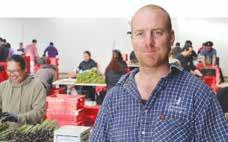
MARCH 2023 6 HORTNEWS
New research shows that eating two green kiwifruit a day can improve sleep quality and mood.
is the complete solution for readers and advertisers, covering every aspect of the wider horticulture industry – news, agribusiness, management, markets, machinery and technology. Contact: STEPHEN POLLARD Auckland Sales Representative Ph 021 963 166 LISA WISE Waikato Sales Representative Ph 027 369 9218 RON MACKAY Wellington Sales Representative Ph 021 453 914 KAYE SUTHERLAND Christchurch Sales Representative Ph 021 221 1994 RURAL NEWS TO ALL FARMERS, FOR ALL FARMERS Publishers of • It’s the one-stop way to reach the horticultural sector • News and information for all types of growers • 10,000 nationwide distribution • Sent out with the trusted and established publication Rural News HORTNEWS NOVEMBER 2021 ISSUE 19 ISSN 2624-3490 ) ISSN 2624-3504 online WWW.HORTNEWS.CO.NZ Bumper cherry –predictedcrop Page 7 Sweet result for hort! SOME HORTICULTURE farmers are also bracing for financial relief from the proposed free trade agreement between New Zealand and the United Kingdom. Apple, pear and onion growers are among those set to benefit although notasbigmajormeatanddairyexportAlanNZApplesandPearschiefexecutive PollardsaysatthemomenttheUK is a $100 million market for growers, consistently ranking in the top two or three. “We have a quota between August and December where volume above that quota attracts an 8% tariff,” he told Hort News Under the proposed FTA, the tariff on pears will be removed on day one, with the tariff on apples reducing over three years “So, there is some financial relief andwebenefitfromamorewelcoming regulatory environment,” says Pollard. Onion growers will face zero tariff from day one. The tariff on New Zea- land onions is currently 8%. New Zealand currently exports $11 million worth of onions to the United King- domOnionsannually. NZ chief executive James Kuperus says the FTA will ensure that this country’s onion exports continue to grow as the world comes to terms with Covid. “Trade and exporting ben- efits a diverse range of New Zealand businesses,” he says. “Without clear trading arrange- ments, improved market access and reduced tariffs, it is extremely difficult totoexportfromthebottomoftheworld larger economies like the United Kingdom. “Of immediate benefit to the onion sectoristheexpectationoftariffsbeing eliminated on onions, once the agree- ment comes into force.” The New Zealand Government announced the details of an “in-prin- ciple” New Zealand-UK FTA last week as trade officials neared completing the deal after little more than a year of negotiations. Kuperus says the NZ onion sector is extremely grateful for the hard work of New Zealand’s negotiatorsanddiplomatswhohaveworked tirelessly to
It
Sudesh Kissun sudeshk@ruralnews.co.nz
MANGAWEKAASPARAGUSmanager SamRaineyoverseesan80hectare asparagusinthecentralNorthIsland. WhenHortNewsvisitedtheproperty inlateSeptember,Raineyandhisstaff wereinthefinalstagesofpreparing fortheharvest.Thepackhousewas beingsetupandatthesametimethe firstspearsofasparaguswerestarting toappear.Whilethetotalsizeofthe propertyis80hectares,theywillpick just65hectaresthisseason–which equatestoupto250tonnes. Seestorypages4and5. Replacement Spray Pumps & Spray Kits Webbline Agriculture is a direct importer/reseller of a full range of pumps from market-leading manufacturers, along with service kits and accessories. Large range in stock. Dealer enquiries are welcome. View online - www.webbline.co.nz Contact Ben 021 819 482 | ben.boakes@webbline.co.nz WAIKATO •CANTERBURY • SOUTHLAND branches NOW PUBLISHED MONTHLY! To book your advert contact your local sales rep
GETTING READY!
A real crunch time for badly hit apple sector
CHAIR OF Apple and Pears NZ Richard Punter says there are different views on whether orchards that are impacted by water and silt can be repaired and apples planted in the same ground.
He told Hort News with the trees and debris and the bulk of the silt gone, there is still a thin layer of silt left. He says some experts believe this can be worked into the soil and things will be fine. However, others are much less optimistic. Before any decision on what to do next is made, Punter says there will have to be much greater testing of the soil.
“The problem for the 80 growers affected is that you can’t insure the trees, so the damage to the orchard blocks is uninsurable,” he explains. “The challenge for growers in this situation is firstly to decide if they want try and reinstate their orchards and if they do where do they get the capital to do this.”
To that end, Punter emailed government ministers last week outlining the problem and suggesting ways in which government might be able to help. The key point is a request that some sort
of financial package be offered by government to bona fide growers with a good track record to enable them to get their orchards up and running again. The concept of a

growers are not looked after, this would have a massive economic impact on the whole province.
“The 80 (apple orchards impacted) are just the ones at the begin-
“There are thousands of people employed all the way down that value chain ranging from orchard staff, packhouse people and an array of service people who sup-

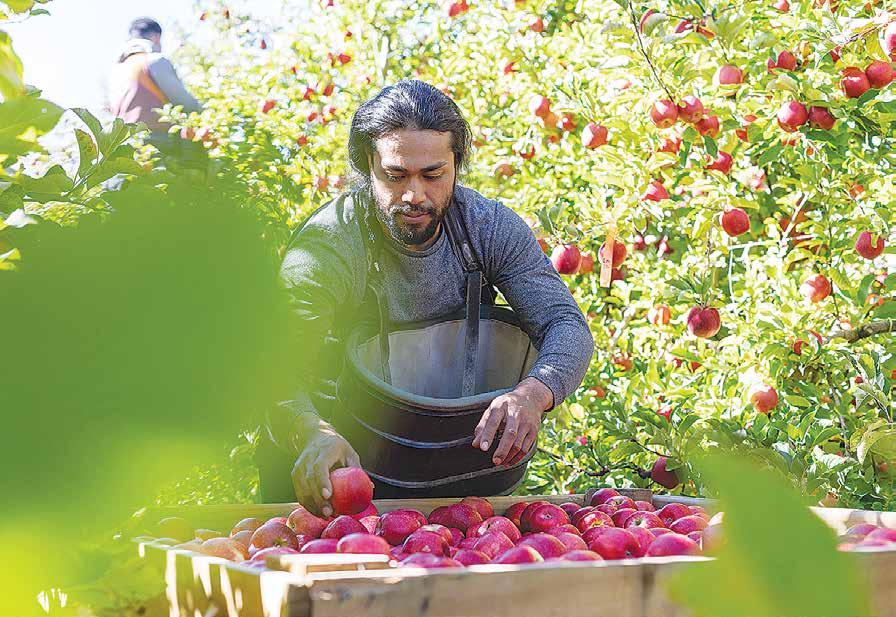
Bay when it was always regarded as a bright spot for our ag industry would be a huge price to pay.”
Punter says they are grateful for the government assistance so
five or more years before they can get a commercial crop off newly planted trees.
He says growers are not asking for a straight handout but for
the community to get back on their feet economically.
Richard Punter says they don’t have the data for Gisborne orchards yet, but that this is being gath-
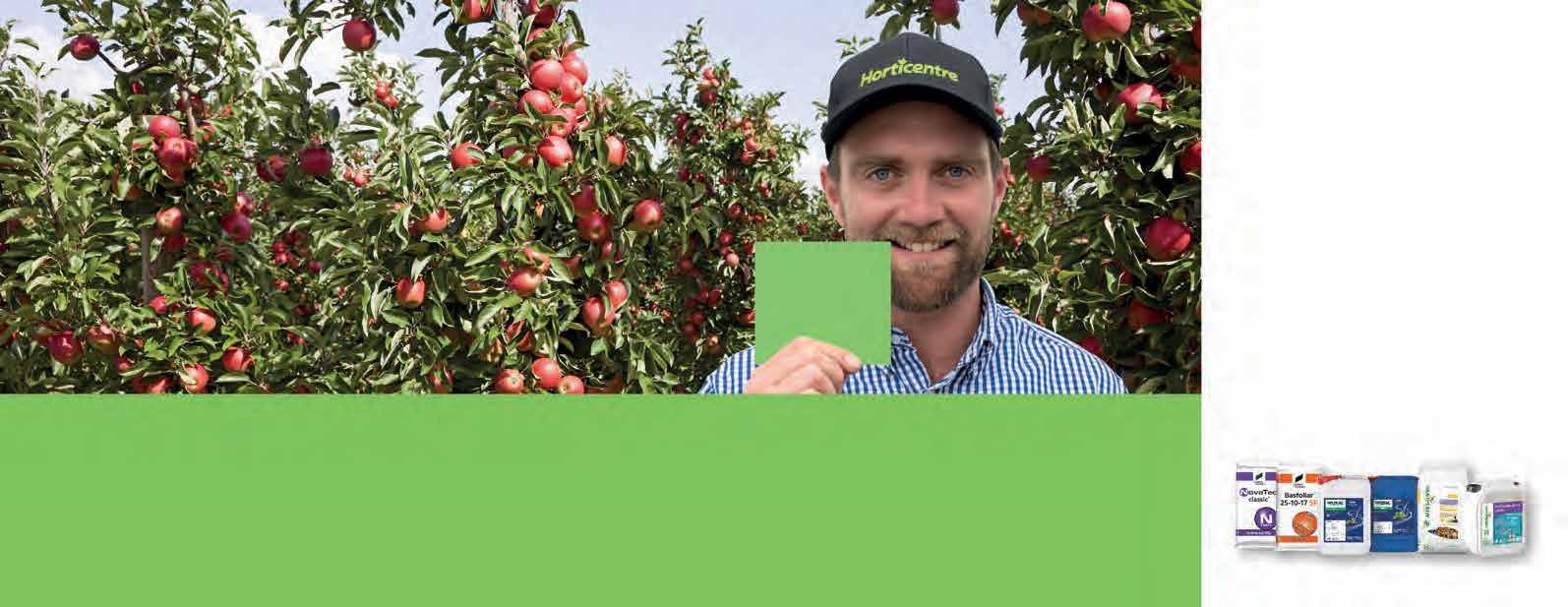
7 MARCH 2023 HORTNEWS
Peter Burke peterb@ruralnews.co.nz
Apple and Pears NZ says urgent government assistance is need for the apple sector, which employs thousands of people all the way down that value chain:
PHOTO: PAUL SUTHERLAND PHOTOGRAPHY.
Seeka’s profit plunges as challenging year ahead beckons
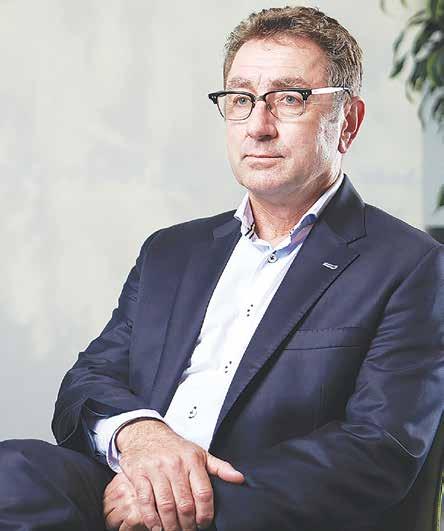 Sudesh Kissun sudeshk@ruralnews.co.nz
Sudesh Kissun sudeshk@ruralnews.co.nz
LISTED FRESH produce handler Seeka won’t be paying a dividend to shareholders after enduring a challenging 2022.
The company, which has operations in New Zealand and Australia, saw a sharp drop in net profit for year ending December 31, 2022 – net profit plunged 56% to $6.5million.
Gross profit was down 19% compared to 2021. However, total revenue
rose 13% to $348m.
“In this challenging environment the Board has determined that no dividend is payable as Seeka focuses on prudent financial ratios,” says chief executive Michael Franks.
He says Seeka and its supplying growers experienced a very difficult year with Covid-19, extreme labour shortages, shipping disruptions, lower kiwifruit yields and poor fruit quality all impacting returns.
CYCLONE DAMAGE UPDATE
SEEKA SAYS since Cyclone Gabrielle it has been inspecting post harvest sites and supplying orchards to assess the potential impact on harvest 2023.
Chief executive Michael Franks says while it did not see any significant damage to post harvest facilities, he anticipates that the full impact on the crops will remain unknown until the fruit is harvested.
“Seeka’s core Bay of Plenty kiwifruit growing region was spared the worst of the weather and was not materially impacted.
“The Hawke’s Bay, Gisborne, Coromandel and Kerikeri regions had varying degrees of impact, with
Hawke’s Bay being worst hit.
“Approximately 5% of Seeka’s kiwifruit supply is grown in the Hawke’s Bay region.
“We will continue to assess the situation and will update the market if Seeka identifies a material loss.”
On harvest 2023, he says kiwifruit volumes are expected to be lower than 2022 due to an early season frost, variable bud break and the cyclone.
Seeka’s response includes a reduction to the 2023 capital expenditure programme and reducing costs in line with the lower crop expectation.
“Harvest 2022 kiwifruit yields were down across the industry, impacting revenues from Seeka’s core post harvest business. “Kiwifruit storage performance, both onshore and offshore, further impacted returns to Seeka’s orchard opera-
tions,” he says.
Despite the challenging season, Seeka achieved an increase in revenues to $348 million by attracting new growers to the business.
Packing operations, however, peaked during the Omicron wave and
the industry was severely short staffed: this led to higher labour costs.
Lower yields impacted margins, contributing to drops in gross and net profits.
Franks says, since the harvest, Seeka has fully reviewed its supply
Poor quality fruit lowers pay out
KIWIFRUIT GROWERS have been told they will be getting a lot less money for their fruit this season.
Zespri has warned that its profit may fall as much as 40% as it struggles with fruit quality issues.
The kiwifruit marketer and exporter company has forecast profit of $217 million to $227m in the year to March 31, down from its November forecast of $225m to $235m. This is well below last year’s $361.5m profit.
Kiwifruit is New Zealand’s largest horticultural export and Zespri handles about a third of the fruit’s global trade, selling into more than 59 countries.
It has been beset with fruit quality issues, which is weighing on grower payments and impacting the company’s reputation for supplying consistent fruit quality.
“The latest February forecast reflects the challenges our industry has experienced in the 2022 season with fruit quality,” Zespri chairperson Bruce Cameron said in an indus-

try update.
Volumes from its growers in other countries were also down, he added.
The kiwifruit harvest generally starts in February, traditionally peaking in mid-April and running through until June. The poor fruit quality has been attributed to inexperienced staff due to a labour shortage, frost, and other reasons.
In its final forecast for the season, the co-operative said it expects to pay $5.55 per tray for green kiwifruit, down from its November forecast of $6.13. For organic green kiwifruit, the payment would drop to $8.04 from $8.83. A tray held 30 fruit.
“While we’ve seen some upside from favourable foreign exchange movements and lower spend across key markets, returns for each of the major pools are down from November’s forecast, other than for Organic SunGold Kiwifruit,” Cameron said.
Based on the forecast, Zespri has halted some progress payments to growers.
Earlier in the year – kiwifruit grower organisation NZKGI – had written an open letter to Zespri asking for an explanation over the lack of
February progress payments for producers of green kiwifruit.
This followed an update to growers on 20 January in which Zespri
chain operations from the orchard to loadout.
It is now focused on achieving excellence in fruit handling in 2023.
Franks anticipates an improved labour supply with a large increase in RSE workers from the Pacific and Malaysia, and a normalisation of travel.
“The completion of a highly-automated packline in the Bay of Plenty, and automation projects at Gisborne and at our largest site near Te Puke will lift post harvest capacity, improve fruit handling and significantly reduce the demand for packhouse labour.”
As part of delivering an excellent service, Seeka is implementing a range of decarbonisation initiatives that support and health and wellbeing of its communities.
Franks says Seeka has set a target to become net zero carbon by 2050.
“We are installing solar panels on our post harvest facilities and rolling out regenerative horticulture practices.
“This includes operating our own commercial worm farm that recovers a nutrient-rich soil conditioner from organic packhouse waste.”
said growers would not get progress payments as fruit quality issues had resulted in additional costs.
The NZKGI letter asked Zespri how it could get the orchard gate return (OGR) forecast so wrong.
“The 20 January announcement was an extreme deviation from the November OGR forecast. Furthermore, the NZKGI executive committee question how much of the variation should have been known at the Zespri board meeting in December.
“Confidence in Zespri’s ability to forecast has been dented,” the letter reads.
NZKGI chair Mark Mayston said there was a high level of concern about Zespri’s systems which allowed for the situation to happen.
“There’s a lack of transparency from Zespri about the offshore side of the supply chain and growers have been left in the dark as communication from Zespri is untimely and inadequate on such important financial matters.”
MARCH 2023 8 HORTNEWS
“Kiwifruit storage performance, both onshore and offshore, further impacted returns to Seeka’s orchard operations.”
Zespri chair Bruce Cameron says the February forecast reflects the challenges the kiwifruit industry has experienced in the 2022 season with fruit quality.
Michael Franks says Seeka has experienced a difficult year with Covid- 19, extreme labour shortages, shipping disruptions, lower kiwifruit yields and poor fruit quality all impacting on returns.
QUALITY ISSUES impacting the 2022 apple crop, rising costs and Covid19 pushed fresh produce exporter T&G Global into a financial loss last year.
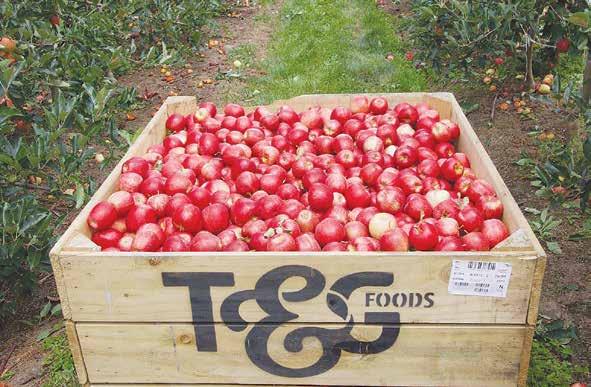
The listed company, owned by German conglomerate Baywa, recorded an after-tax loss of $0.9 million for 2022, compared to the prior year’s $13.6 million profit.
While total revenue for the year at $1.3 billion was $70 million down on the previous year, operating profit increased $3.5m, due primarily to improved performance of the high margin VentureFruit business and reduced operating losses in the international trading business.
But at a group level, a strong start in the first half of the year was partly eroded by product disposals and softer prices linked to the Envy apple brand quality issue. Rapidly worsening economic conditions in the
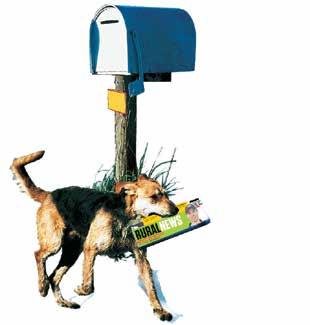
Northern Hemisphere, which affected consumer demand in the UK and Europe, also influenced the year-end result.
T&G Global chief executive officer, Gareth Edgecombe, says the company’s 125th year in business would be marked as one of its most challenging.
“The significant prog-
ress we are making in strengthening our underlying business through growing, packing, marketing and selling premium, high quality fresh produce to Kiwis and consumers around the world is unfortunately not reflected in our financial results, given the challenges faced in 2022 with unfavourable growing
conditions, rising costs and supply chain constraints,” says Edgecombe.
The Envy quality issue arose mainly from heavy rains before and during the 2022 harvest. Supply chain disruptions then delayed the arrival of fruit into markets, especially Asia. While the business moved quickly to withdraw
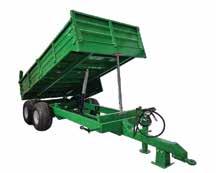
WEIGHING UP IMPACT OF GABRIELLE
SCALES CORP says it is still appraising the impact of Cyclone Gabrielle on the horticultural side of its business.
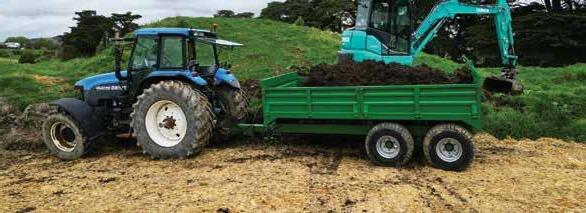
The company made this statement after reporting on its half year result. It reported that lockdowns in China had led to material reductions in market prices during criti-
cal sales windows, which impacted its horticulture division.
Scales added that lower volumes, higher shipping costs and labour availability also impacted its horticulture division.

The underlying earnings before interest, taxes, depreciation and amortisation (Ebitda) in its horti-

culture division were $17m – versus $40.8m in the prior year. Meanwhile, the company has withdrawn its full-year guidance for 2023 due to the wide-ranging impacts of Gabrielle. An initial assessment from the company said the material impact will be on Mr Apple’s orchards.
fruit which was below consumers’ expectations, the price of remaining inventories softened and some disposals were required.
“We are confident that our response protected the value of the brand and customer and consumer confidence in it,” says Edgecumbe. “We undertook a full anal-
ysis to understand the contributing factors and implement learnings should similar conditions occur in the future.”
Apples operating profit decreased from $40.6m in 2021 to $27.8m in 2022, and revenue decreased by $76.8m to $774.6m.
T&G Global chair and BayWa Global Produce chief executive officer, Benedikt Mangold, says although the financial results reflected a difficult year, the company’s transformation programme, while constrained by Covid, is building the strong foundations needed to accelerate the growth strategy.
Commenting on the damage caused by
Cyclone Gabrielle, Edgecumbe says at this stage it is too soon to know the financial impacts.
“Our hearts go out to all of those affected by the cyclone, and especially our team members, seasonal RSE workers and our partner growers, who are grappling with their own losses and damages,” says Edgecombe.
Harvesting in the Hawke’s Bay had commenced ahead of the cyclone and has resumed in some of the company’s and partners’ orchards, following robust health and safety assessments. Harvesting will also soon be underway in Nelson and Otago, which were unaffected by the cyclone.
9 MARCH 2023 HORTNEWS
hearts go out to all of those
the cyclone, and
our team
RSE
and
are
T&G
quality issue
Envy
heavy
2022
Quality
major impact
T&G RURAL NEWS TO ALL FARMERS, FOR ALL FARMERS RURAL NEWS TO ALL FARMERS, FOR ALL FARMERS www.ruralnews.co.nz Delivering to your mailbox for over 30 years HIRE TO BUY A HELPING HAND WITH THE CLEAN UP 2168 SH1 Kaiwaka / sales@farmshop.co.nz / 0800 00 22 09 / farmshop.co.nz Hire rate $500/week Redeem 100% of 2 months hirage if purchased Redeem 80% of 6 months hirage if purchased Redeem 70% of 12 months hirage if purchased Call Alex or Weston on 0800 00 22 09 today! T&C’s - prices exclude GST, minimum hire of 2 months, hirage paid weekly, valid in Gisborne & Hawkes Bay only - Cashels 8 Tonne Multi-purpose Dropside Trailer. We have a Trailer deal for March/April for the Gisborne and Hawkes Bay regions to help out with flood damage clean up... Scan the code to see it in action BEST VALUE FARM TRAILER IN NEW ZEALAND PLUS HIT US UP FOR A FREE ROLL OF POLYWIRE - YOURS ABSOLUTELY FREE! PLUS Free Delivery to Gisborne and Hawkes Bay 8 TONNE
Sudesh Kissun sudeshk@ruralnews.co.nz “Our
affected by
especially
members, seasonal
workers
our partner growers, who
grappling with their own losses and damages.”
says
around its
apples arose mainly from
rains before and during the
harvest.
issues have a
on the bottom line for
Electric tractors in production

delivers 40hp (30kW) of continuous power and short duration peak up to 70hp (52kW). Depending on operating conditions, maximum battery runtime is claimed to be more than 14 hours.
However, an optional battery pack is available for those customers seeking to extend the operating range.

Monarch Tractor suggests one person can swap the batteries in less than 10 minutes. The recharge times from 0 to 100% is said to be 5 to 6 hours using an 80-amp charger unit, or out to around 12 hours with a 40-amp charger. Batteries are covered by a 10-year (10,000hr) warranty.
The MK-V is packed with safety features including roll and collision prevention, visionbased PTO (540rpm) safety and 360° cameras. The tractor will stop moving if it detects a human within 2m, and the PTO automatically shuts off if the system detects a hand or a leg within 30cm.
Offering customisable, additional packages to use the latest autonomous

hardware and software technology for driverassist and driver-optional operations, the tractor can perform pre-programmed tasks without the need for the operator.

An interactive automation feature allows the tractor to follow another in the same field. Meanwhile, it is also possible for one operator to manage up to eight MK-Vs at a time.
Said to be well suited to orchards, vineyards, or areas where noise might be an issue, the electric tractor weighs in at 2.3 tonnes and offers a turning radius of 2.7 metres.
Currently, the tractor is only available in North America, with 4-wheel drive, a Cat I/II rear linkage, 750kg lift capacity, and 75l/min hydraulics flow at prices starting at US$89,000 (NZ$141,000).
CNH Industrial recently secured a minority stake in Monarch Tractor, and the California-based start-up (founded in 2018) played a role in the development of the recently showcased New Holland T4 Electric Power tractor.
– Mark Daniel
MARCH 2023 10 HORTNEWS
THE MONARCH-made MK-V tractor is now in production with the first
of the 100% electrically powered tractors – which can be manned or auton-
omous – heading out to customers. The electric drivetrain
READING THE PAPER ONLINE HAS NEVER BEEN EASIER RURALNEWS HEADER Ferist et quati aut pedici te vollab imod quamet atur soleniet quiatibu. PAGE 15 HEADER vollab imod quamet atur soleniet quiatibu. PAGE 23 HEADER Ferist et quati aut pedici te vollab imod quamet atur soleniet quiatibu. PAGE 24 TO ALL FARMERS, FOR ALL FARMERS Read us until the cows come home! Breaking news Management Animal health Agribusiness Machinery & Products reviews Competitions... and much more All the latest stories and more at www.ruralnews.co.nz
Now maintain your crops in prime condition and ready to trade when it suits you. Pick your time to harvest and reduce your dependency on the weather. Dry and store your crops using one flexible system and forget the worry of harvesting large volumes in a short space of time. Let Flach & Le-Roy crop drying and storage systems take the strain. Call us on +44 1480 495956 or visit www.FLR-CropDrying.com You’ve sweated blood to grow prime quality crops Flach & Le-Roy. Safeguarding quality. Gough Agritech 03-318 8312 www.goughagritech.co.nz
The Monarch-made MK-V tractor is now in production with the first of the 100% electrically powered tractors – which can be manned or autonomous – heading out to market.
THE RESULTS of the firstever field study of the MagrowTec system on Kiwi soil have recently been released.
Bharat Bhana – from Hira Bhana & Co. Ltd in Pukekohe, a pioneer of this technology in New Zealand – has achieved some remarkable results. With improved drift control, the commercial grower has seen a 23% increase in coverage, a 35% reduction in water use, as well as improving spraying productivity by a third.
Often droplets delivered by conventional sprayers are either too small or too large. In the case of the former, they float for longer and can evaporate or drift away
from the target.
By contrast, droplets that are too large, hit the plant at a higher speed, so are prone to bounce, shat-
ter, and run-off, reducing retention on the leaf and the chemical’s overall performance.
MagrowTec, a set-and-
forget hardware system that can be retro-fitted to any sprayer configuration, uses magnetic assistance to create more
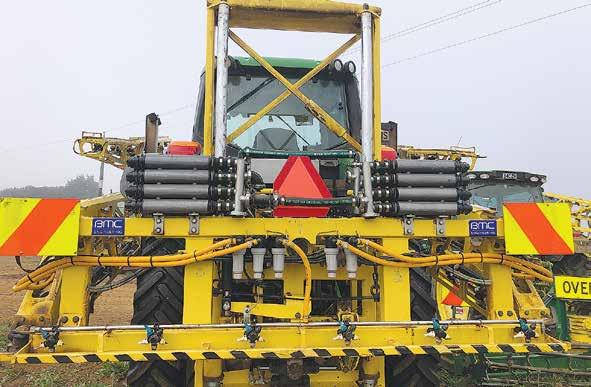
optimum-sized spray droplets during spraying. It also has sufficient momentum to overcome drift and get down into
the plant canopy but is also small enough to stay on the plant surface upon impact.
Hira Bhana & Co. Ltd ran a side-by-side study with a conventional sprayer and noticed a significant reduction in drift and better coverage shown on the waterreactive paper used in the study.
The company was also able to reduce their water usage from 400 litres per hectare to 260 litres per hectare.
“We are getting less drift, which means there’s more spray going down onto the plant, where it should be,” explains Bharat Bhana, owner of Hira Bhana.
“We also achieved a lower water rate, meaning at the end of the day, we’ve got a lot more
work done. It would normally take some two days to spray 200 hectares of onions, which we’ve now cut to a day and a half.
“We’ve also saved some fuel and spray chemical, we’ve got less drift and saved some water, so that must be good for the environment.”
The system is distributed by Vantage New Zealand, and director Jemma Mulvihill says they are thrilled by the results of this field study.
“MagrowTec’ s technology has allowed our client to increase their productivity and profitability, by using the latest innovation and technology to meet the challenges of modern agriculture.”
www.magrowtec.com
Improved coverage and less water use CULTIVATOR GIVES ORGANIC MATTER A BOOST
ITALIAN MANUFACTURER Maschio, whose products are imported and distributed in New Zealand by the Power Farming Group, has introduced the SC Pro-Bio rotary cultivator.

This machine is specifically designed to target cover crop incorporation, resulting in improved soil organic matter. The SC Pro-Bio has been designed to break down and incorporate crop residues, cover crops and green manures.
The cultivator mulches plant debris and mixes it with fine soil in the top few centimetres of the profile. This helps speed up the decomposition and the transformation of residue into compost-like material.
Meanwhile, the company suggests that adding a front flail mower to the
operation can improve mulching and organic matter breakdown – particu-
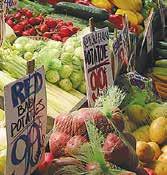
larly in thicker cover crops.
Suitable for use with tractors
from 110hp and 170hp, the SC ProBio is equipped with 6 ‘L’ type blades
per flange, operating at 540rpm or 1,000rpm, to achieve a rotor speed of up to 300rpm.
To achieve a uniform working depth across the full 2.8 or 3.1 metre working width of the machine, the SC Pro-Bio has four depth wheels. This ensures optimum stability and uniformity – particularly at shallow settings. Working at depths of 3cm to 6cm the SC Pro-Bio can work to speeds of up to 10km/h.
To aid aeration, with the aim of increased material breakdown, the rear hood can be adjusted hydraulically from the tractor seat to allow perfect control of soil mixing.
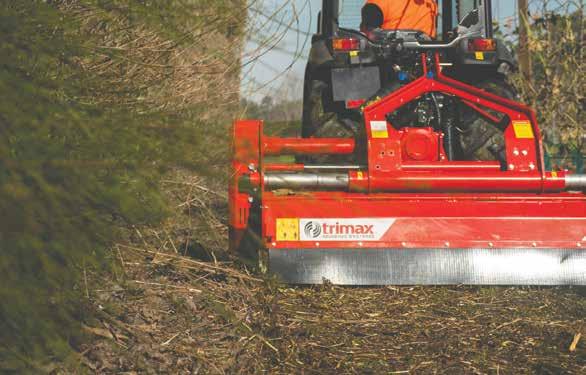 – Mark Daniel @rural_news facebook.com/ruralnews
– Mark Daniel @rural_news facebook.com/ruralnews
11 MARCH 2023 HORTNEWS
Mark Daniel markd@ruralnews.co.nz
The SC Pro-Bio rotary cultivator is specifically designed to target cover crop incorporation, resulting in improved soil organic matter.
MULCH BRANCHES UP TO 90MM IN DIAMETER Are you hitting your target market? Contact your local sales representative for more information ✔ BREAKING NEWS ✔ MACHINERY REVIEWS ✔ MANAGEMENT STORIES ✔ AND MUCH MORE... HORTNEWS RURAL NEWS Auckland Stephen Pollard Ph 021-963 166 Waikato Lisa Wise Ph 027-369 9218 Wellington Ron Mackay Ph 021-453 914 Christchurch Kaye Sutherland Ph 021-221 1994
MagrowTec is a set-and-forget hardware system that can be retro-fitted to any sprayer configuration.
40 years of dedicated service
A LOCAL phenomenon in Motueka has just celebrated 40 years in business.
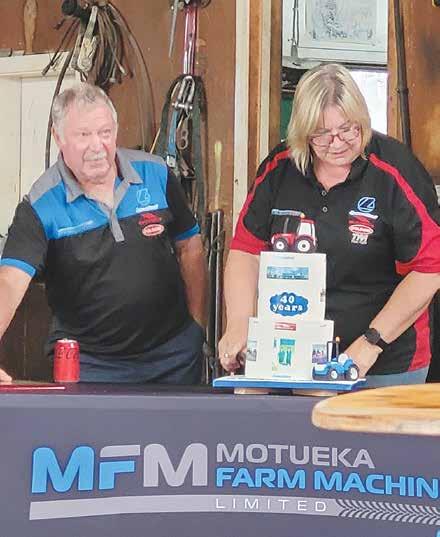
Small of stature, but big in voice and actions, George Sturgeon can trace his love of all things mechanical to driving the family’s truck at 12 years of age and the memory of being at school boring him to tears.
Thankfully, back in 1970, Sturgeon began an apprenticeship at Motueka Motors. However, when that business went into receivership in 1982, he put his gift of the gab into practice and worked for the liquidator collecting monies owed, before ending up with a service van and all the tractor parts.
This heralded the birth of Motueka Farm Machinery (MFM), which started



up in rented premises just off the town centre. This location that has expanded four times over the years and continues to be the centre of operations.
At around the same time, US-based Case bought the well-known UK company David Brown Tractors, then in 1985 Case and International Harvester merged to form Case International. In 1986, the multi-national company decided to rationalise the number of dealers in New Zealand and unfortunately Motueka Farm Machinery was one of the casualties.
As fate would have it, Sturgeon spoke to a friend who knew the Landini tractor agent over the hill in Blenheim. An introduction was made and Motueka FM became agents for the Nelson/ Tasman region, going on to sell over 350 tractors
during the following 26 years.
The Landini brand is well known for its innovative configurations aimed at the vineyard and horticultural sectors. Currently owned by the Italian Argo Group, the brand was a particularly good fit for the horticulturalists in the area and further afield.

Offering a wide range of tractors than can be narrow, low or wide to suit specific tasks, the brand is also capable of putting out high horsepower from a very compact package. Alongside Landini and its sister brand McCormick, which offers utility tractors for the broader agricultural landscape, MFM also sells the Goldoni tractor – an equal-sized wheel tractor particularly suited to low growing kiwifruit operations.
George and his wife Dee, who’s been along
for the ride since the start, put their success in clocking up 40 years in the business to his love of farm machinery and a satisfaction in helping people find solutions or cure problems.
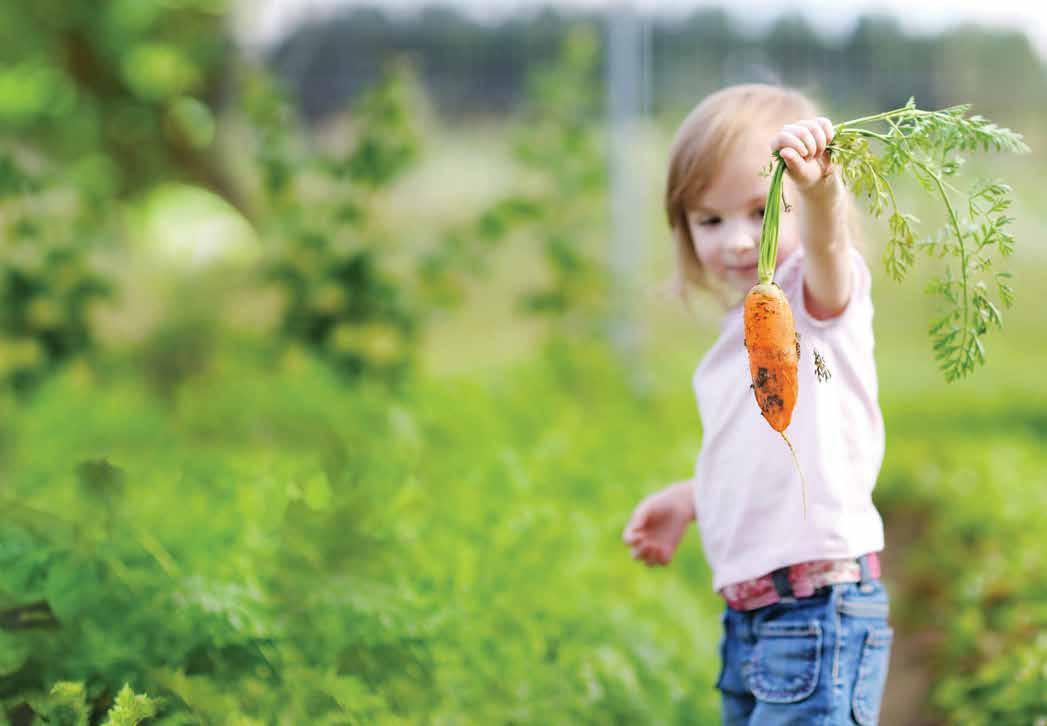
Very much a local, and described as part of the Motueka furniture, George and the business are avid supporters of local rugby and are also well known for the family’s fairground business that travels the South Island.

“I thoroughly enjoy working with people to get things done, but along the way we’ve looked after what we’ve got,” is how Sturgeon sums up the four decades in the machinery trade.
“I learned very early on, leave any issues at work and keep them separate from home –that’s what Dee tells me anyway!”
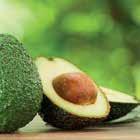
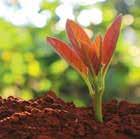
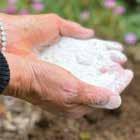
MARCH 2023 12 HORTNEWS
Mark Daniel markd@ruralnews.co.nz
Available at: It
100%
For more information go to gypsum.co.nz
George and Dee Sturgeon put their success in clocking up 40 years in the business to their love of farm machinery and helping people.
all starts with healthy soil.
natural, BioGro certified Supplies readily available source of calcium and sulphate sulphur to support soil health and plant growth.




















































 Sudesh Kissun sudeshk@ruralnews.co.nz
Sudesh Kissun sudeshk@ruralnews.co.nz














 – Mark Daniel @rural_news facebook.com/ruralnews
– Mark Daniel @rural_news facebook.com/ruralnews





